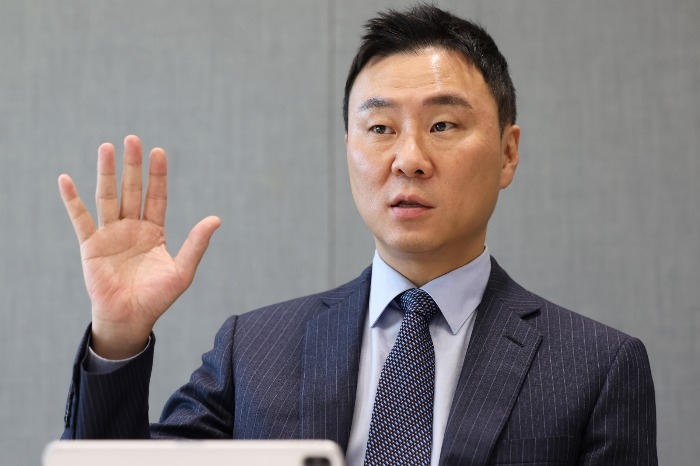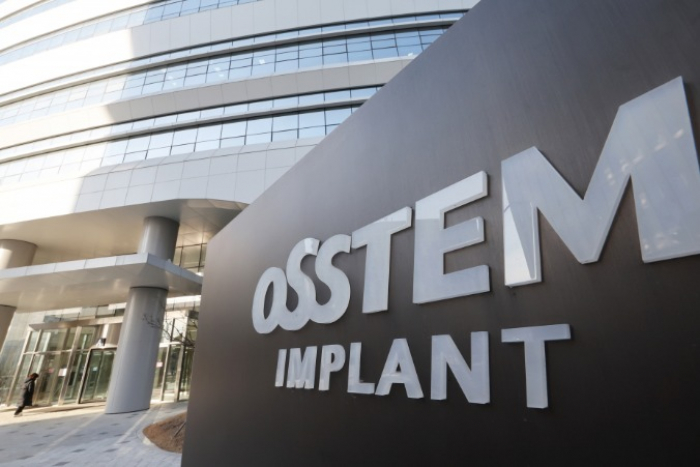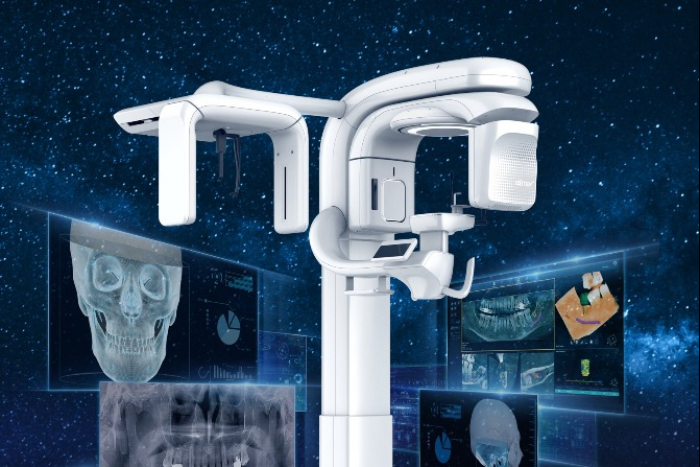Mergers & Acquisitions
MBK, Unison to expand Osstem Implant's target reach beyond China
Osstem should increase sales in US and Europe; KCGI shareholder activism has protected minority investors, Unison CEO says
By Feb 03, 2023 (Gmt+09:00)
4
Min read
Most Read
LG Chem to sell water filter business to Glenwood PE for $692 million


Kyobo Life poised to buy Japan’s SBI Group-owned savings bank


KT&G eyes overseas M&A after rejecting activist fund's offer


StockX in merger talks with Naver’s online reseller Kream


Mirae Asset to be named Korea Post’s core real estate fund operator



South Korean private equity firm Unison Capital Korea is set to focus on boosting the corporate value of Osstem Implant Co., once the PE manager and MBK Partners acquire the dental implant maker's management rights via a tender offer later this month.
“We believe Osstem’s shares are undervalued,” Unison CEO Kim Soo-min said during an interview with The Korea Economic Daily on Feb. 1.
“Osstem should prioritize expanding sales beyond the Asian market and digitalizing medical products. The company also needs to improve its corporate governance, but that is less important than other issues,” the CEO added.
NO FURTHER ATTEMPT FOR OSSTEM BUYOUT
Last week, Unison Capital and North Asia-focused MBK Partners agreed on a tender offer to secure management rights of Osstem, the world’s fourth-largest dental implant producer.
Osstem announced on Jan. 25 that its founder and Chairman Choi Kyoo Ok, the company’s top shareholder, has signed a deal with those PE firms to sell 1.4 million shares, about half of his 20.6% stake, at 274.1 billion won ($223.4 million), or 190,000 won apiece.
The offer price was set by applying a similar level of valuation as those of US' leading dental equipment suppliers Envista Holdings Corp. and Henry Schein Inc., according to Kim.
The PE consortium aims to buy 15.4% or more of the dental implant maker’s potential total stake through the takeover bid. Kim said the consortium may acquire a full stake if the other stakeholders accept the offer.
This indicates that the PE firms might delist the Kosdaq-listed dental implant maker. Under Korea’s Commercial Act, a shareholder with a 95% stake or more can delist the portfolio company without consent from the other shareholders.

The PE firms won’t execute additional takeover bids to delist Osstem, he said. “We may consider delisting if we meet legal requirements to do so. Delisting is not our purpose; but it could be one of the results from a takeover bid,” he noted.
ALL EYES ON KCGI
Local activist fund Korea Corporate Governance Improvement Fund (KCGI) is Osstem’s No. 3 shareholder with a 6.92% stake. KCGI, which has carried out shareholder activism against Osstem, is garnering market attention as to whether or not it will accept the tender offer.
KCGI can choose either way – it can sell Osstem’s shares to the consortium, achieve around a 150% internal rate of return and lose its rights to continue shareholder activism against the company; or it can remain as Osstem’s shareholder, taking a risk that the consortium may delist the company in the future.
The activist fund has bought Osstem’s stocks since the second half of 2022. In efforts to enhance the fraud-hit company’s corporate governance, KCGI on Jan. 18 sent an activist shareholder letter to Osstem, demanding CEO Choi’s resignation and board independence.
KCGI has not yet made any decision on whether or not to accept the tender offer, activist fund CEO Kang Sung-boo told The Korea Economic Daily on Feb. 2. Kang said the investment firm will do its best to secure maximum returns to shareholders and will not consider hostile moves to the consortium, hinting that it may accept the takeover bid.

TO DIVERSIFY TARGET MARKETS AND BOOST TECH M&A
The tender offer won’t create any major conflict between the consortium and KCGI, Kim said.
“We empathize with the issues around Osstem’s corporate governance that KCGI has raised and will address them after securing management rights,” Kim added.
He said KCGI shareholder activism has played a significant role in protecting minority investors. The activist campaign has also had many positive effects, encouraging Osstem CEO Choi’s decision to sell his management rights and helping the consortium set the share offer price, Kim added.
The consortium looks to create synergy between Osstem and Medit Corp., the world’s third-largest 3D dental scanner maker. Last December, MBK signed a deal to buy Medit for 2.45 trillion won from Unison.
“Some 25% of Osstem’s revenue comes from China. The country is implementing volume-based procurement (VBP) in dental implant products, which is pressuring Osstem to discount prices by more than 15%. This will increase revenue but lower profits,” Kim said.
The consortium plans to ramp up Osstem’s sales in the US and Europe by increasing partnerships with dental service organizations (DSOs), which are independent centers that support dental practices.
It will also invest in advanced dental product technologies. The consortium will boost the research and development of digital dentistry equipment as well as consider mergers with and acquisitions of global tech companies for medical devices.
Write to Dong-Hun Lee, Chae-Yeon Kim and Ji-Eun Ha at leedh@hankyung.com
Jihyun Kim edited this article.
More to Read
-
 Mergers & AcquisitionsMBK, Unison agree on tender offer for Korea’s Osstem Implant
Mergers & AcquisitionsMBK, Unison agree on tender offer for Korea’s Osstem ImplantJan 25, 2023 (Gmt+09:00)
3 Min read -
 Mergers & AcquisitionsKorean activist fund KCGI buys Meritz Asset Management
Mergers & AcquisitionsKorean activist fund KCGI buys Meritz Asset ManagementJan 09, 2023 (Gmt+09:00)
1 Min read -
 Shareholder activismShareholder activism gathers momentum in South Korea
Shareholder activismShareholder activism gathers momentum in South KoreaSep 19, 2022 (Gmt+09:00)
2 Min read -
 Mergers & AcquisitionsUnison Capital puts Korea dental scanner maker up for sale
Mergers & AcquisitionsUnison Capital puts Korea dental scanner maker up for saleJul 05, 2022 (Gmt+09:00)
2 Min read
Comment 0
LOG IN


